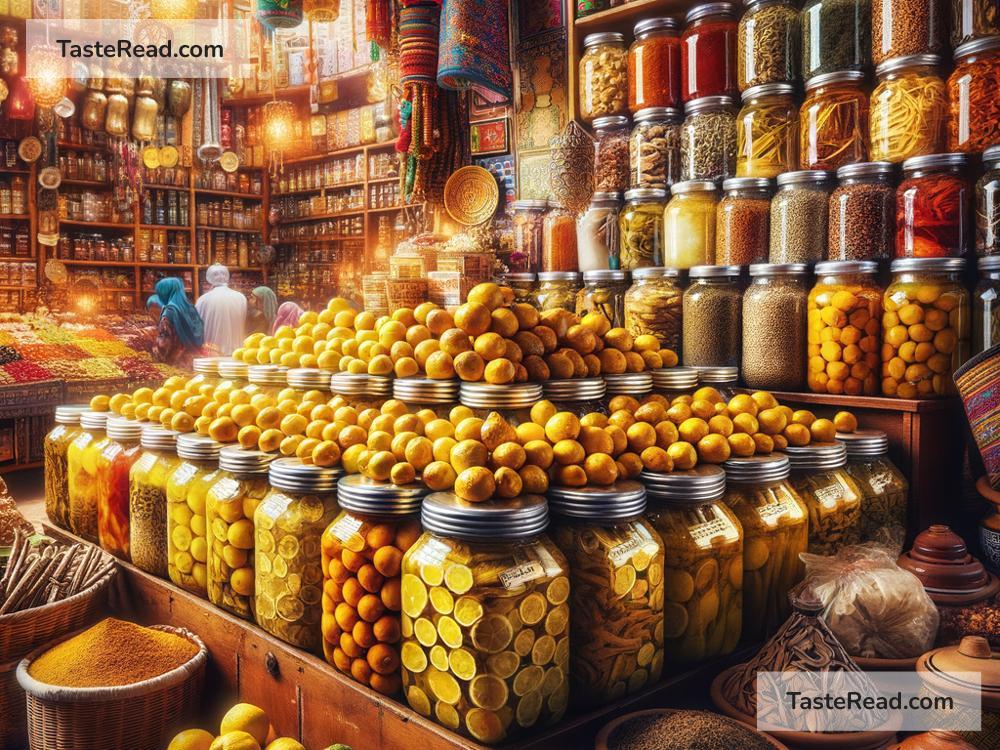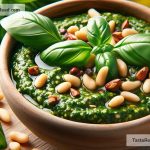Title: The Zesty Magic: The Significance of Preserved Lemons in North African Cuisine
When it comes to the vibrant and aromatic world of North African cuisine, one ingredient stands out for adding a unique zest and depth of flavor that is hard to replicate with anything else. This magical ingredient is none other than preserved lemons. These tangy, salty lemons are not just an addition; they are a cornerstone that adds soul to many traditional dishes from this region.
What Are Preserved Lemons?
Before diving into their significance, let’s understand what preserved lemons are. They are lemons that have been pickled in salt and their own juice and then left to ferment for several weeks. This process not only softens them but also mellows their tartness while intensifying their lemony essence. The result is a condiment that can bring any dish to life with its unique combination of salty, sour, and umami flavors.
A Historic Ingredient with Deep Roots
The tradition of preserving lemons can be traced back several centuries in North Africa, specifically in countries like Morocco, Algeria, and Tunisia. This technique was initially developed as a way to keep lemons fresh for longer periods, especially in regions where fresh produce was not always available year-round. Over time, preserved lemons became more than just a method of preservation; they evolved into a cherished culinary tradition that is integral to North African cuisine.
The Role of Preserved Lemons in North African Dishes
Preserved lemons are amazingly versatile and can be used in a multitude of ways in North African cooking. They are most commonly used to add depth and complexity to tagines, which are slow-cooked stews that often include a combination of savory, sweet, and sour flavors. The lemons work their magic by infusing the dish with a bright, citrusy aroma that balances the rich spices commonly used in North African recipes, such as cumin, cinnamon, and saffron.
Beyond tagines, preserved lemons are also a staple in salads, grilled meats, and sauces. They can be finely chopped and added to couscous or rice for an extra burst of flavor. In many homes, a small amount of preserved lemon is often added to dishes almost as a seasoning, enhancing and elevating the overall taste profile.
The Health Benefits
Apart from their culinary uses, preserved lemons are also known for their health benefits. Lemons are a great source of vitamin C, which is essential for a healthy immune system. The fermentation process also promotes the growth of beneficial bacteria, or probiotics, which are good for gut health. Incorporating preserved lemons into one’s diet can thus offer a tasty way to enjoy these health benefits.
Making Your Own Preserved Lemons
One of the beautiful aspects of preserved lemons is their simplicity to make at home. All you need are fresh lemons, a lot of salt, and some patience. The lemons are traditionally cut into quarters, salted generously, and then packed into a jar where they release their juices. Over a few weeks, the lemons ferment in their own brine, transforming into the soft, flavorful preserved lemons beloved in North African cuisine.
Many families have their own recipes and methods passed down through generations, adding spices like cinnamon, cloves, or coriander seeds to the jars for an extra layer of flavor. Making preserved lemons at home not only allows you to explore these personal touches but also connects you to a long-standing culinary tradition.
Conclusion
In the rich tapestry of North African cuisine, preserved lemons shine as a testament to the power of simple ingredients to transform dishes into complex, flavorful creations. Their significance goes beyond mere taste; they are a cultural heritage, a nod to the ingenuity of ancient preservation methods, and a celebration of vibrant flavors that define North African cooking.
Whether you’re a seasoned chef or a curious food enthusiast, experimenting with preserved lemons can open up a whole new world of culinary possibilities. Their unique taste and versatility make them a must-try for anyone looking to explore the depth and richness of North African flavors. So, the next time you find yourself in your kitchen looking to add a little magic to your meal, reach for a jar of preserved lemons and let their zesty magic whisk your taste buds away to the heart of North Africa.


